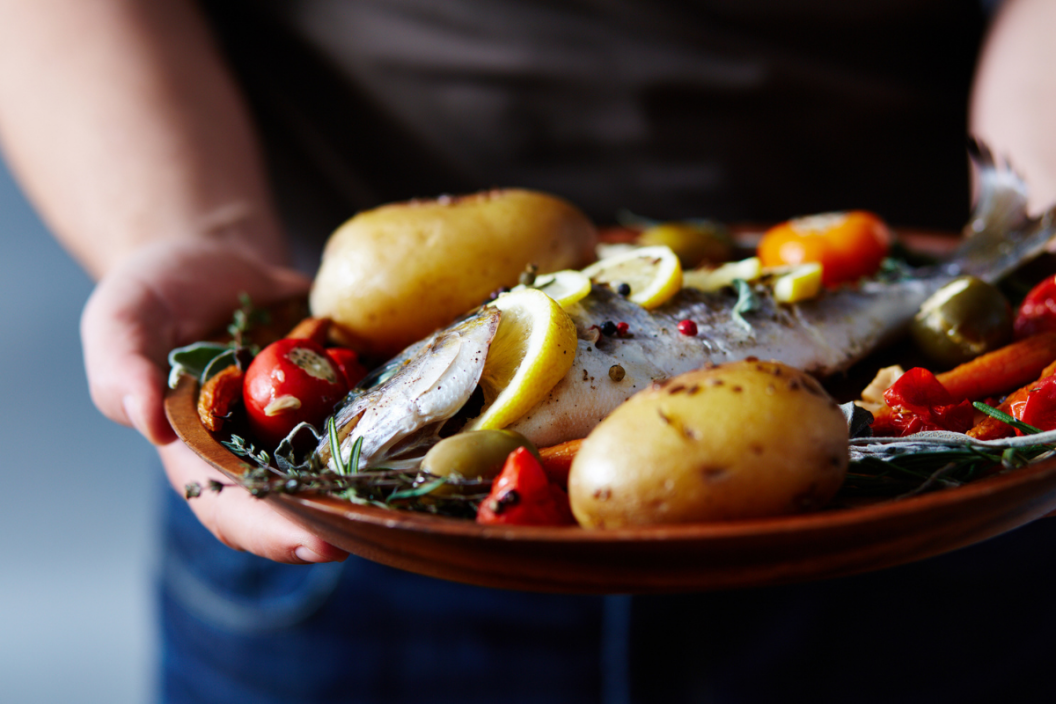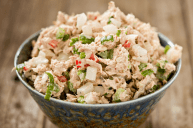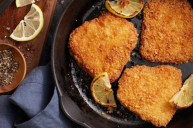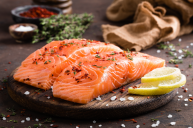When I'm feeling like a fancy dinner or treat-myself meal, I always go to the grocery store and buy a salmon fillet. Whether it's a special occasion or simply a night where I feel like I deserve a treat, nothing feels more festive to me than perfectly cooked salmon, a side of crispy potatoes, and a veggie like asparagus or artichoke. However, after learning that the fishing industry has a horrendous impact on the environment, it doesn't feel quite as good to buy a salmon fillet whenever I please. The question is, for my next fancy dinner, is it better to buy wild caught fish or farm-raised fish?
To get an expert's opinion on the matter, I reached out to the director of Greenpeace's oceans campaign, John Hocevar, to ask which fish to buy for the lowest environmental impact. Although I was hoping for a straightforward answer for which fish to buy, the issues with the world's fishing industry is far from simple.
Should I Buy Wild-Caught or Farm-Raised Fish?
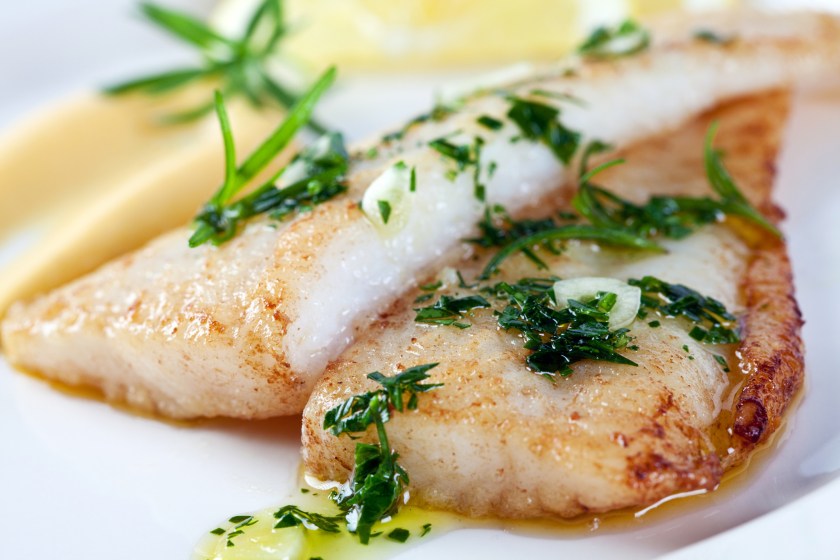
Getty Images/alle12
I always assumed that the most sustainable fish to buy was wild seafood varieties like Wild Alaskan salmon. However, it turns out that the answer to this question depends more on the specific fish, rather than whether it was caught in the wild or farmed. Unfortunately, both wild fishing and fish farms have terrible effects on the environment, making it a question of the lesser of two evils.
When it comes to wild-caught fish, Hocevar says "commercial fishing has done an incredible amount of damage to our oceans, depleting populations, putting species at risk, damaging huge swaths of seafloor habitat and changing the structure of whole food webs."
Because of this, even though the fresh fish caught in the wild wasn't raised in a problematic farm, buying it still supports an industry that's causing incredible amounts of damage to the ecosystem because of overfishing and the impact on sea creatures' natural habitats.
Along with this, commercial fishing practices have become problematic in other ways. Hocevar explains, "we have eaten most of the large fish in the oceans at this point, so it is harder for companies to turn a profit. As a result, exploitation of fishermen has become a serious problem, with widespread forced labor, human trafficking, and poor conditions becoming common on many fleets."
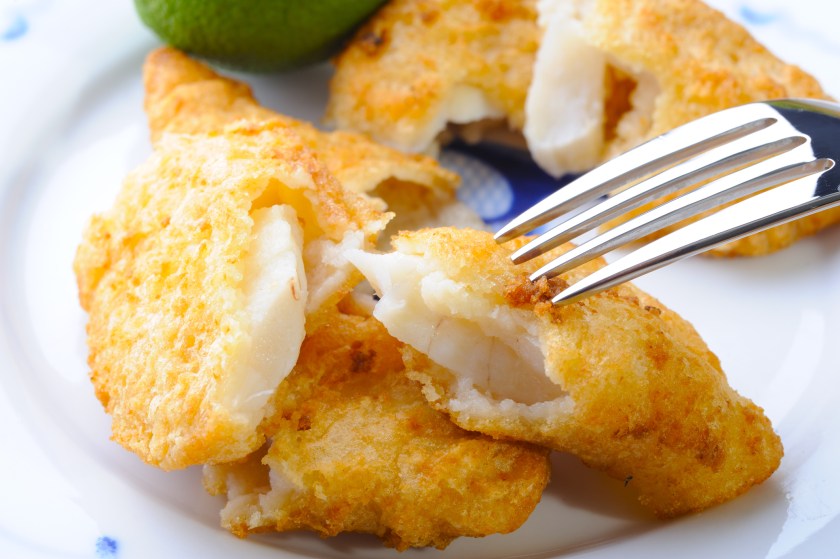
Getty Images/4kodiak
As for farm-raised fish, it has its own slew of issues. Farmed fish are typically fed wild fish, so to maintain a fish farm, it's necessary to take fish from the ocean. Small fish like anchovies and herring are often fed to farmed salmon, but these could arguable be put to better use feeding hungry people in developing countries. If left in the ocean, these fish populations could feed animals like whales and sea birds.
To go further into the harmful effects of the fishing industry, Hocevar says "other concerns include escapes of exotic species into natural environments where they do not below, and impacts of antibiotics, concentrated waste, and disease in the waters near fish farms."
Unfortunately, when it comes to sustainability, it seems like there's no winning when trying to choose which seafood to buy. Rather than focusing on buying wild caught fish or farmed fish, it's best to be intentional about where you're buying your fish and which species you buy.
Which Types of Fish Are The Best To Buy?
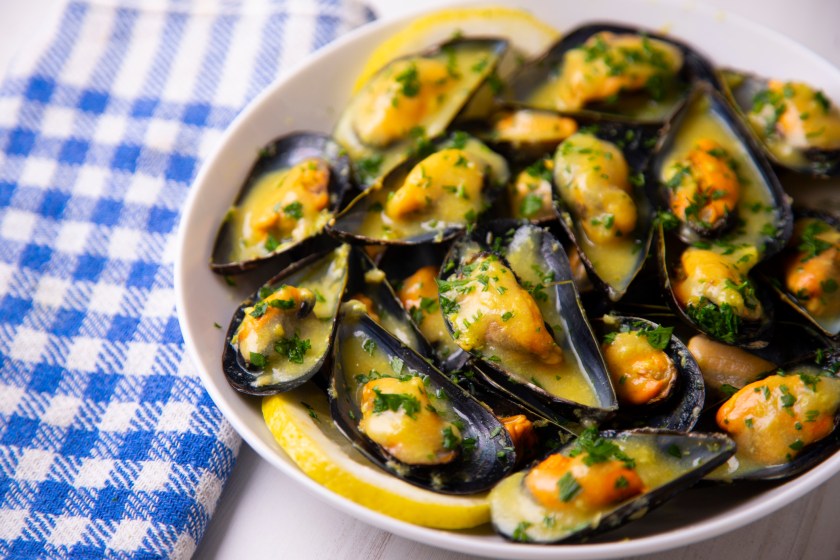
Getty Images/Al Gonzalez
Most of us have our favorite seafood, whether it's mackerel, sea scallops, seabass or tilapia. However, some seafood is more sustainable than others, so it's important for any sustainability-minded consumer to know how to choose the better option for the ecosystem.
One of the best things to do is to buy from local fisheries if possible. This reduces energy spent on shipping, along with providing the opportunity to learn more about the fish you're buying. When buying, ask how the fish was caught, where it's from, and how the fishermen are treated.
The more local the fish, the better. As for the fishermen, the more transparency the fishery can provide, the less likely it is that exploitation or forced labor is happening. If you're buying farmed fish, it's essential to ask about what the farmed fish was fed and whether the the farm uses pesticides or antibiotics. The more chemicals and unnatural substances used, the worse for the water near the fish farm.
When it comes to specific species, Hocevar says that tuna is especially problematic in the amount of exploitation happening in the industry. Something else to avoid is bottom trawled seafood, which is caught by towing a large net along the ocean floor. This practice is especially harmful because it destroys plants and kills bottom-dwelling animals while it catches fish. Some bottom trawled seafood are shrimp, cod, haddock, flounder and rockfish.
Hocevar says, "Farmed shellfish is usually a good option, especially oysters or mussels. For wild-caught fish, forage fish like herring, sardines and anchovies are usually healthy and relatively sustainable."
For a full list, check out this chart at EDF Seafood Selector, which allows you to see which species are the most sustainable seafood, along with comparing different types of each fish to see which is the most sustainable.
How To Have a Smaller Environmental Impact In Daily Life
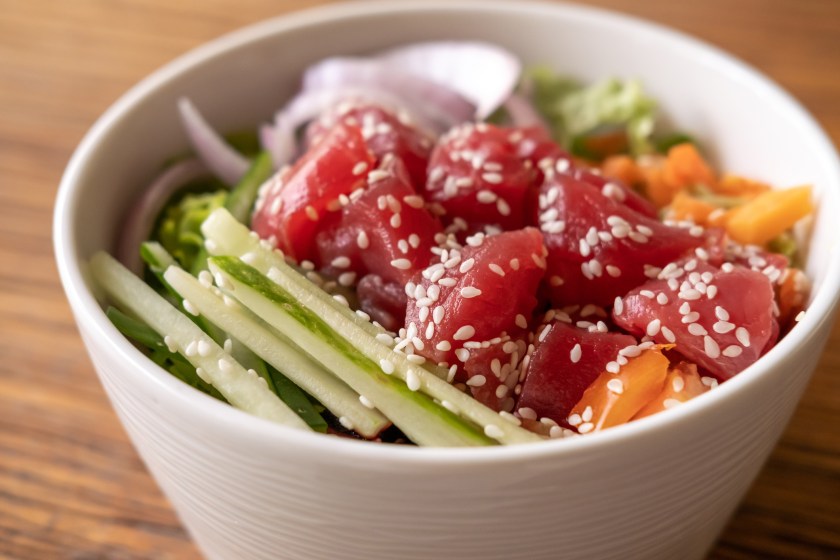
Getty Images/Space_Cat
Along with being intentional with your purchases, it's important to think about how your daily practices affect your ecological footprint. Here are some tips from Hocevar for how to live more sustainably overall:
- Buy in bulk for items that don't spoil, and buy only what you'll use for items that do spoil
- Reduce your meat consumption
- Buy local and organic
- Reuse, share, and trade when possible
- Be mindful of the fuel you use, from cars to planes to gas to electricity
He also encourages doing what you can to change the society we live in by reaching out to elected officials and corporate executives. As he says, "elected officials and corporate executives need to hear from us that we want better options - choices that are healthier for our communities and the planet."
